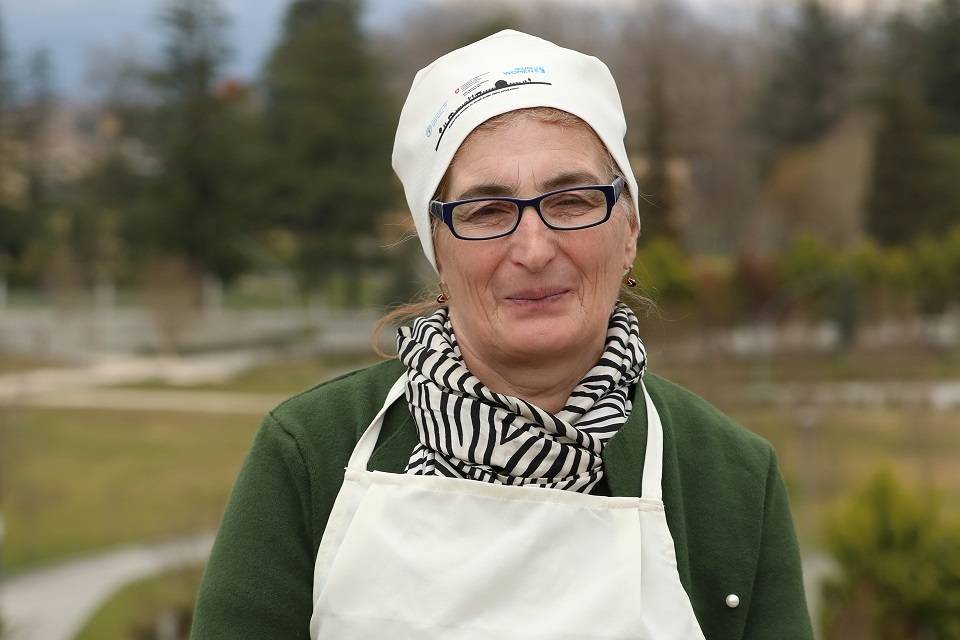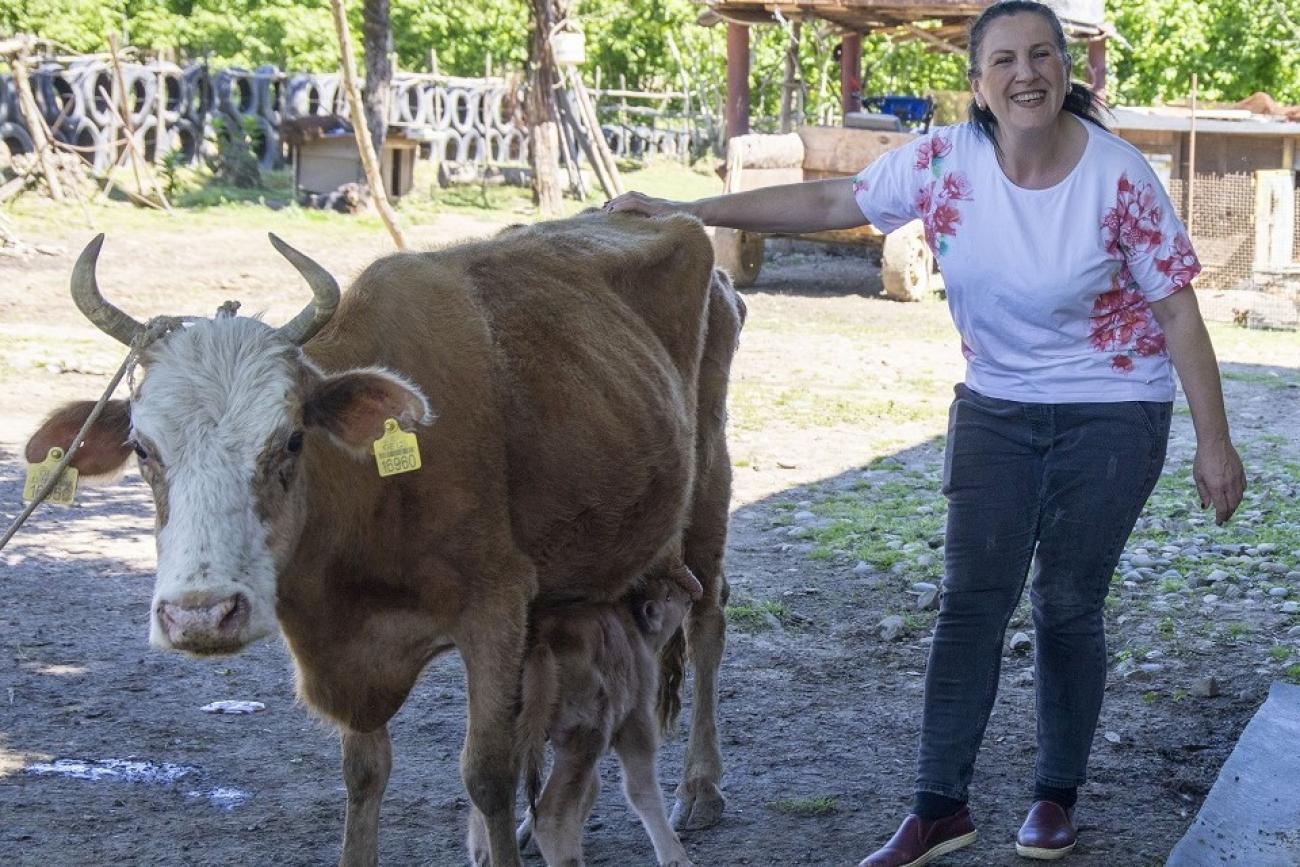‘If a woman becomes economically stronger, she will be able to resist violence more easily,’ says Shorena Shonia, a 48-year-old farmer from Pakhulani
“My first cow was a little orphan, and I raised her with milk and teats that I begged for from the neighbours,” recalls 48-year-old Shorena Shonia. “While taking care of this cow, I felt love for the relationship with my livestock. To this day, she is like a member of my family; I call her ‘one of my pieces’. This cow brought me my first income, and after that, she helped me to overcome a lot of hardships.”
Shorena has three children and four grandchildren. A philologist by profession, she taught Georgian language and literature at a local school for years. Now she is the manager of Pakhulani Kindergarten, she has 14 cows and sometimes milks up to 50 litres of milk a day, and at the same time, she takes care of pigs, chickens and turkeys.
Shorena mainly produces hard cheese, sulguni, cottage cheese and sour cream and sells her goods to regular customers in the village, although recently she has become known for several varieties of cheese, including her Italian caciotta and her kashkaval.
With the help of UN Women and FAO, Shorena learned how to produce caciotta and kashkaval at a Farmer Field School together with 21 other women from Pakhulani. “At first, we wondered how on earth aged cheese can be good, but we became very interested. Then we were delighted with the result. Then other people too liked my caciotta, and when I presented it at the exhibition, it completely sold out,” says Shorena, adding that it is very important for women to have their own business and income.
“We learned how to run and manage a business, but when we learned about women, our rights and equality, it had a different significance,” she says. “We saw that if a woman becomes economically stronger, she will be able to resist violence more easily.” Shorena plans to employ other women along with the expansion of her business and help them earn their own income.

Eliza Kalandia, a 57-year-old farmer from the village of Kurzu. Photo: UN Women
‘An economically strong woman strengthens both her family and the country,’ says Eliza Kalandia, a 57-year-old farmer from the village of Kurzu
Eliza Kalandia, a 57-year-old mother of two, lives in the village of Kurzu in Martvili Municipality and teaches Georgian language and literature at a local school. Like the other women in her village, traditional cheesemaking has been an integral part of her daily life for years.
Eliza works as a dairy farmer with her husband. She says that they have divided the work: her husband takes care of the cows and milks them, and she makes the cheese herself. Balanced work helps Eliza combine teaching and farming and further develop her business. This is even more important now that she is actively producing Italian caciotta, which she learned at the Farmer Field School and which deserves the approval of customers.
Eliza also learned about the joint UN Women/FAO project from her husband. She gathered 20 women in Kurzu and hosted the Farmer Field School meetings in her home.
“I kept thinking about how to sell cheese, but the project gave me these skills as well,” Eliza explains. “Now I participate in all exhibitions and bring income to my family. I am especially happy to network with other women: we are entrepreneurs of different generations, with diverse products. I love when I learn new things from them.”
With the help of the project, Eliza received the necessary equipment, and with the financial support of “Enterprise Georgia” programme, she purchased four refrigerators and installed a continuous source of electricity, and now she is preparing for the opening of the enterprise. “We will produce cheese entirely according to modern standards,” says Eliza. “I want to invite my female students to the opening, in order to show them what and how we are doing. Maybe they will become interested and choose this line of work and become stronger. An economically strong woman strengthens both her family and the country.”
The Farmer Field Schools are part of the project “Promoting the Economic Empowerment of Women Farmers by Supporting Dairy Production through Farmer Field School (FFS) Approaches”, funded by the Swiss Agency for Development and Cooperation.




